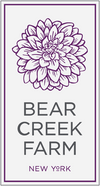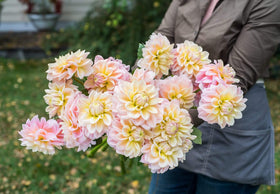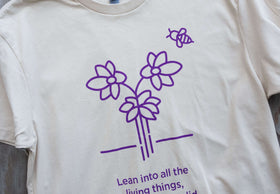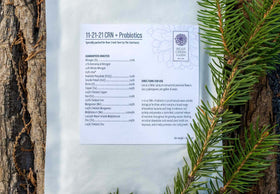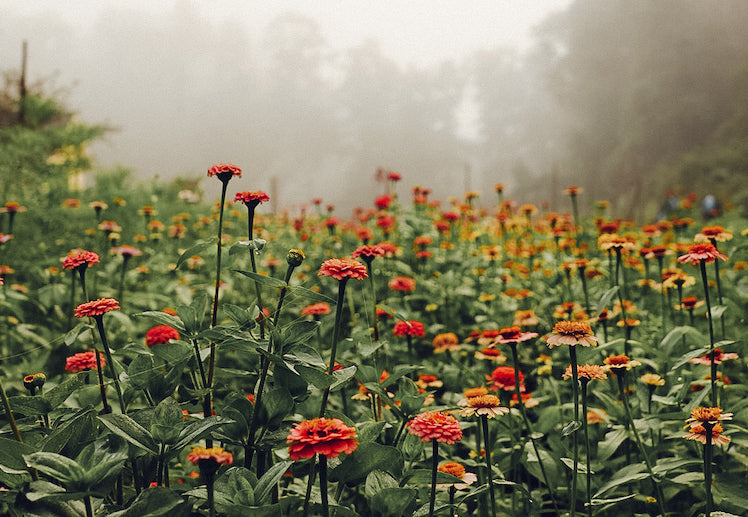“We don’t experience natural environments enough to realize how restored they can make us feel, nor are we aware that studies also show they make us healthier, more creative, more empathetic and more apt to engage with the world and with each other. Nature, it turns out is good for civilization. – The Nature Fix: Why Nature Makes us Happier, Healthier, and More Creative by Florence Williams
At Bear Creek Farm, we learn by making lots of mistakes in our quest for beauty. (This makes success all the sweeter.) We may sometimes be disappointed, but we, are never deterred. This is not because we are gifted or heroic. It is because we intuit, broadly, that nature feeds our souls and inspires creativity. We live in challenging times. Still, evidence of hope and healing is often made manifest in nature. This reality calls on us to find the wellsprings of hope that are always there. There are the little green shoots that poke through the earth - reminding us to be patient – just a bit longer.

In her seminal book, The Nature Fix: Why Nature Makes us Happier, Healthier, and More Creative, Florence Williams points to scientific evidence that shows a clear link between time spent outdoors in nature and individual overall mental and physical health. Williams points to examples of improved physical health (lower blood pressure), as well as mental health (reduction of anxiety). In addition, Williams connects personal creativity and shows that nature can nurture those who risk, seemingly, the dregs of hope - to store up and re-grow an unexpected resurgent, and yes, sweeter hope.
Many people wonder aloud about how flower farmers cope – all the hard work month after month – and then a crop compromised by a late hard frost. It would be ridiculous to deny that this fact of farming is immensely frustrating – but we choose to continue. I, for one, believe that this persistence is not unique to any one grower, but resides in all growers – as a direct function of the creativity about which Williams links to nature.
So much of the pace of life is anxiety-provoking. There is constant pressure to “keep up,” - with bills and schedules - things that keep us up too late - and wake us up too early. Research links a reduction of the symptoms of now recognized psychiatric conditions such as PTSD and ADHD to the time a sufferer spends in nature. This is important because it enhances non-medical treatment plans (sometimes in conjunction with those medical, we do not mean to imply judgement).
I was speaking with a friend who mentioned that she has had little time for anything but (just barely) caring for her children and (just barely) keeping up with work. She noted that all her personal friendships had changed. The concept of “self-care” has become something of a running joke. “I wish I had time to learn to grow something pretty,” she said.

To this friend, I say: you do. Start small. Go for a walk. Notice the subtleties of nature – the different flowers, the colors changing. All of it. Deriving the benefits of nature is not an all or nothing proposition. If one is an urban dweller, go to a pocket park and find a bench. Nature is a generous partner in what she returns. Urban dwellers are often struck by the way in which greenery pokes through any sidewalk. Many admire abandoned lots reclaimed by neighbors to begin community gardens.
Much research conducted in the last few years points to soaring rates of loneliness and depression. We remind that nature is everywhere; it can help to reform neural pathways. It can also provide a way for re-connection with people we deeply value. We throw down a challenge – see whether you - and maybe even a friend - can take a walk, grow a flower from seed, or even to participate in a Bear Creek Farm workshop. Nature is a salve – let it heal or teach you. The result will pay in spades (pun intended) far more than any one goal in what blooms.
